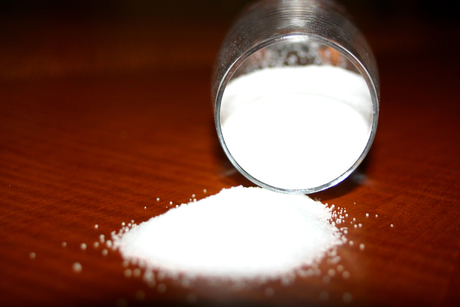Why do we crave salt?

Researchers in Melbourne have determined the mechanism which explains our addiction to salty foods and this research may even be able to help us curb other addictions.
It’s not news that salt, sugar and fat are as addictive as opiates, but exactly how these substances affect our brains has been the subject of intense research in recent years. Researchers from The Florey Institute of Neuroscience and Mental Health have determined how a specific circuit in our brain’s opioid system is responsible for making us seek out especially salty foods and may point the way towards drug treatments to curb salt addiction.
Dr Craig Smith from Deakin University’s School of Medicine, who has been working with the Florey Institute team, explained, “Modern western diets high in salt also tend to be high in things like fat and sugar — which have also been shown to possess addictive properties. Put these three ingredients together and you have an almost irresistible recipe for obesity.”
According to Victorian statistics, deaths from disease associated with consuming too much salt outnumber road fatalities by as much as six times. Chronic kidney disease, heart problems including stroke and high blood pressure are all attributable to excessive salt consumption and it’s no wonder we crave the salty stuff.
“Our bodies have multiple forms of ‘natural opioids’ — those molecules released after you enjoy a particularly energetic session of exercise (or lovemaking), drinking water when thirsty or eating salt after sweating,” said Dr Smith. “Interestingly, these same molecules also control our craving of these rewards. Although scientists know that the opioid system regulates salt seeking, the exact circuit has, until now, remained a mystery.”
Dr Smith’s team discovered that naloxonazine, an opioid blocker, can drastically reduce the craving for salt, which affects the central amygdala, the same part of our brain that regulates emotion.
“These findings open the way for us to study this salt-seeking circuit in humans using magnetic resonance imaging and other techniques to then develop targeted drugs to inhibit salt craving and promote more healthy dietary choices,” said Dr Smith. This research may also lead to improved treatments for other addictions that are controlled by our opioid receptors including morphine and heroin.
This research was published in the journal Proceedings of the National Academy of Sciences and funded with a grant from the National Health and Medical Research Council.
Five scenarios for the future of Antarctic life
A team of Australian and international researchers have predicted five possible outcomes for how...
Could this biosensor bypass labs with onsite PFAS detection?
La Trobe University has developed a portable biosensor that may allow rapid, onsite detection of...
How a tiny worm changed a decade of scientific thinking
A tiny roundworm has helped University of Queensland scientists rethink the way sensory nerve...




